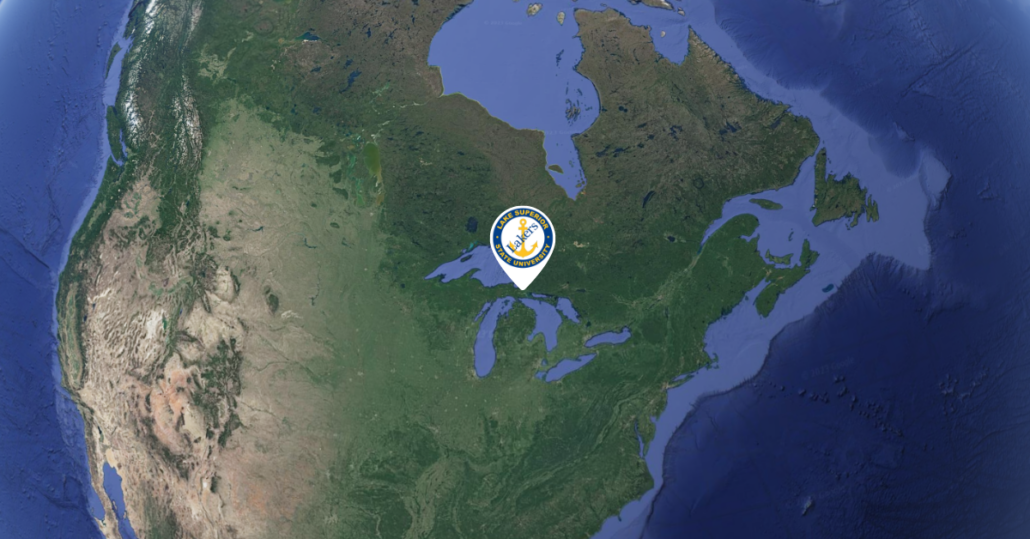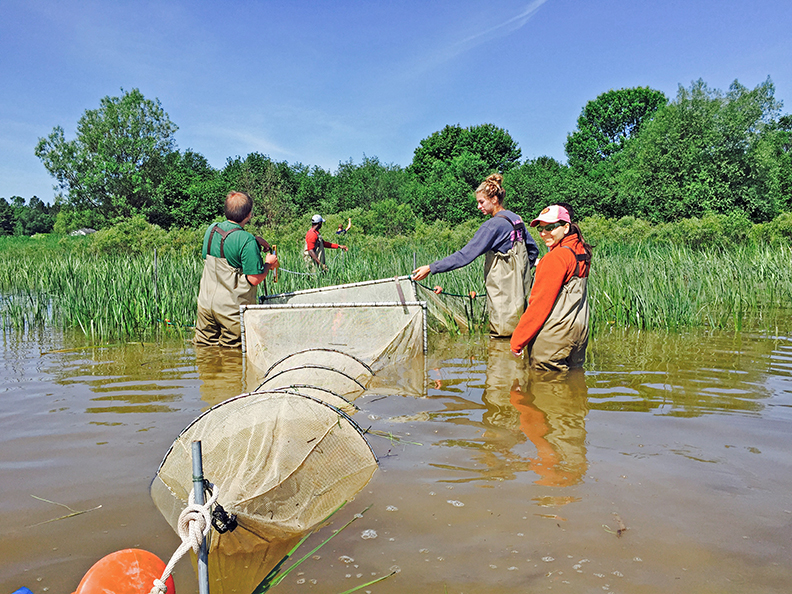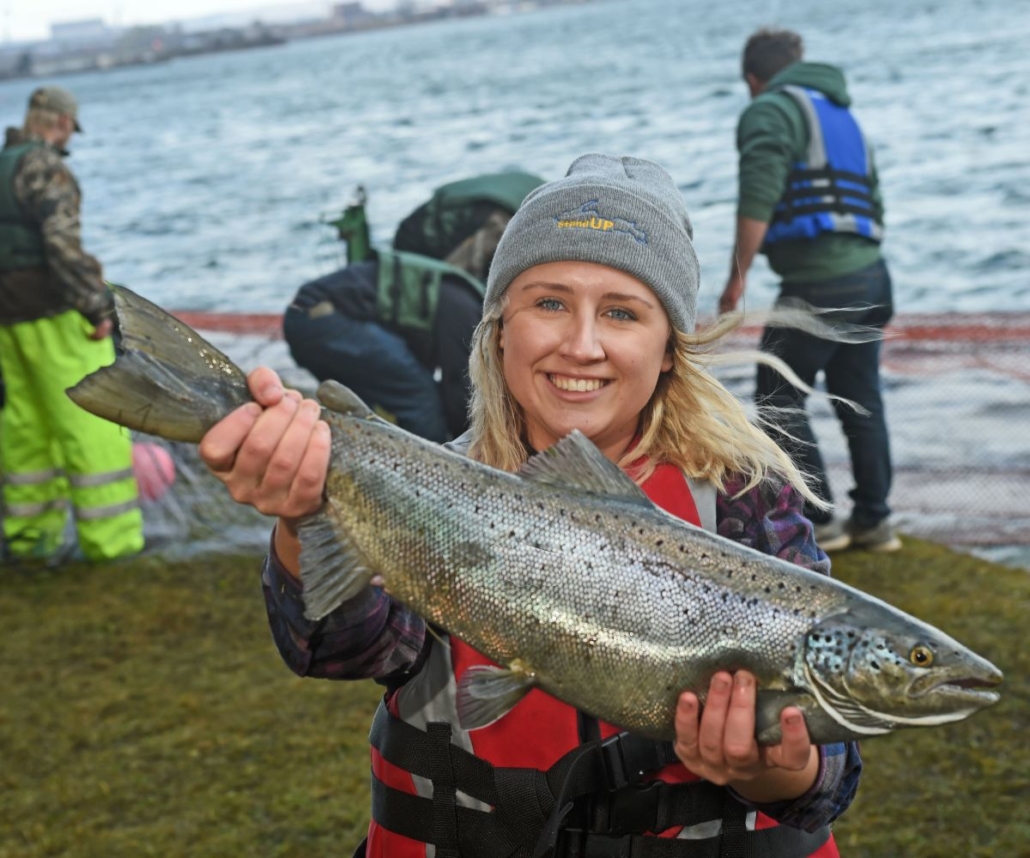Fisheries and Wildlife Management
The Fisheries & Wildlife Management program places an emphasis on understanding relationships between organisms and their habitats by blending a conceptual understanding of fish and wildlife ecology and population dynamics with practical skills obtained during laboratory and field exercises. Students can enjoy careers with natural resource management agencies as technicians or biologists.
Where Our Alumni Are Working
- Arizona FWCA – Fisheries Tech
- Environmental Consulting Firm (OH) – Fish Biologist
- Idaho Fish & Game – Wildlife Tech
- Illinois Natural History – Research Associate
- MI Dept. of Natural Resources – Wildlife Biologist
- MI Dept. of Natural Resources – Fish Hatchery Tech
- MI Dept. of Natural Resources – Fisheries Biologist
- Michigan State Univ. – Elk Research Tech
- Natural Resources Conservation Service – Biologist
- Purdue University – Graduate Student
- SFWS (ND) – Biologist
- Univ. of Georgia – Field Researcher
- Univ. of Minnesota – Research Asst./Graduate Student
- Univ. of New York – Research Asst./Graduate Student
- US Fish & Wildlife Service (MI) – Biologist Tech
- US Fish & Wildlife Service (MI) – Fisheries Tech
Why Students Choose LSSU
Separate concentrations in Fisheries Management and Wildlife Management are designed for those students who have an overriding interest in either field. When you complete the required courses for either of these concentrations you will have satisfied all educational requirements for certification by either the American Fisheries Society or The Wildlife Society.
At Lake Superior State University class sizes are small and labs are taught by faculty rather than graduate students. Hands-on experience includes working with sophisticated laboratory equipment and the opportunity to work at many diverse terrestrial and aquatic field sites.
Senior Projects and Undergraduate Research
Piping Plover Research
Lake Superior State University student Michelle Kane cradles a two-week-old piping plover after it’s been banded, weighed, and a tiny fluff of down collected for genetic analysis. Kane and another LSSU student, Gislaine “Gessie” Peters (green shirt), have been monitoring three nests of the endangered shorebird near Grand Marias, Mich., since May.
Student Biologists Monitor Lake Superior, Huron-Area Wetland Health
Lake Superior State University student team sets a fyke net to collect fish and other aquatic organisms during a June 24 run on Ashmun Bay, in Sault Ste. Marie, Mich. Federally-funded through the Great Lakes Restoration Initiative, the Great Lakes Coastal Wetland Monitoring project monitors birds, amphibians, fish, invertebrates, and water quality to develop ecological indicators of wetland health.
Student Discovers that Atlantic Salmon are Reproducing in the Wild
Roger Greil, former manager of LSSU’s Aquatic Research Laboratory, holds up a container full of Atlantic salmon fry that were hatched in the wild, not in the lab’s hatchery. Evidence of Atlantic salmon reproducing in the wild was discovered by a student who was doing research on lake sturgeon in the St. Marys River.
Undergraduate Research Fund
We Develop Professionals
Students Leave LSSU Well Prepared
LSSU has a great reputation for placing Fisheries and Wildlife students in graduate and professional schools, such as:
- University of New York
Values and Attributes of LSSU Students
- Creativity
- Desire to Help Humanity
- Enthusiasm for Exploring
- Intellectual Growth
- Precision
- Spirit of Scientific Inquiry
Fisheries & Wildlife Degrees
LSSU is one of only two Michigan universities that offer this exciting degree, but only Lake State provides an emphasis on hands-on learning in the field and lab. Courses at LSSU take advantage of the 800,000 acres of forests, 3 Great Lakes, 100s of inland lakes, and 1000s of stream and river miles that are within an hour’s drive of LSSU.
- BS Fisheries & Wildlife Management
- Conservation Officer Concentration
- Fisheries Management Concentration
- Wildlife Management Concentration
Career Choices
- Research Biologist
- Fisheries Technician/Biologist
- Wildlife Technician/Biologist
- Zoo or Nature Center Staff
- Private Consultant
Hands-On Learning
You’ll get to work closely with your professors, who are dedicated teachers and experts in their field. You’ll get great hands-on experiences in labs. Most of our classes feature laboratory sections in which you’ll work with sophisticated equipment and/or in great field sites.
The Center for Freshwater Research and Education is only one of a few such facilities across the U.S. Students get a chance to work in the hatchery operation, producing Atlantic salmon for release in the St. Marys River or on any of several other aquatic ecology research projects housed at the Lab.
We offer a wealth of out-of-class experiences. You’ll work with a professor on your own senior thesis research project. You may also work in the department helping set up labs, or on a professor’s research project, or CFRE. Or you may work for the Learning Center, helping other students excel in Fisheries and Wildlife Management classes.
Our location provides unsurpassed field sites. Several types of forests, grassy openings, wetlands, inland lakes and rivers, the St. Marys River and of course all three of the Upper Great Lakes are within an hour’s drive of campus. You will visit these sites often in labs and for other projects. No other university offers access to as many varied field sites as we do.

“Our facilities and resources are top notch and our laboratory is right outside our door–forests, lakes, rivers, and wetlands.
Our Fisheries and Wildlife Management program is well-known throughout the region for educating students in the field, lab, classroom, and community. We provide our students with the knowledge and technical skills necessary in natural resources, but we also show them how to apply their knowledge to real-world management situations.”
“Prior to my time at Lake State, my professors rarely learned students’ names and my classes often felt impersonal. I didn’t realize how important that faculty interaction could be until I spent a few weeks here. The personal attention is motivating, often pushing me to work harder than I would have otherwise.”




